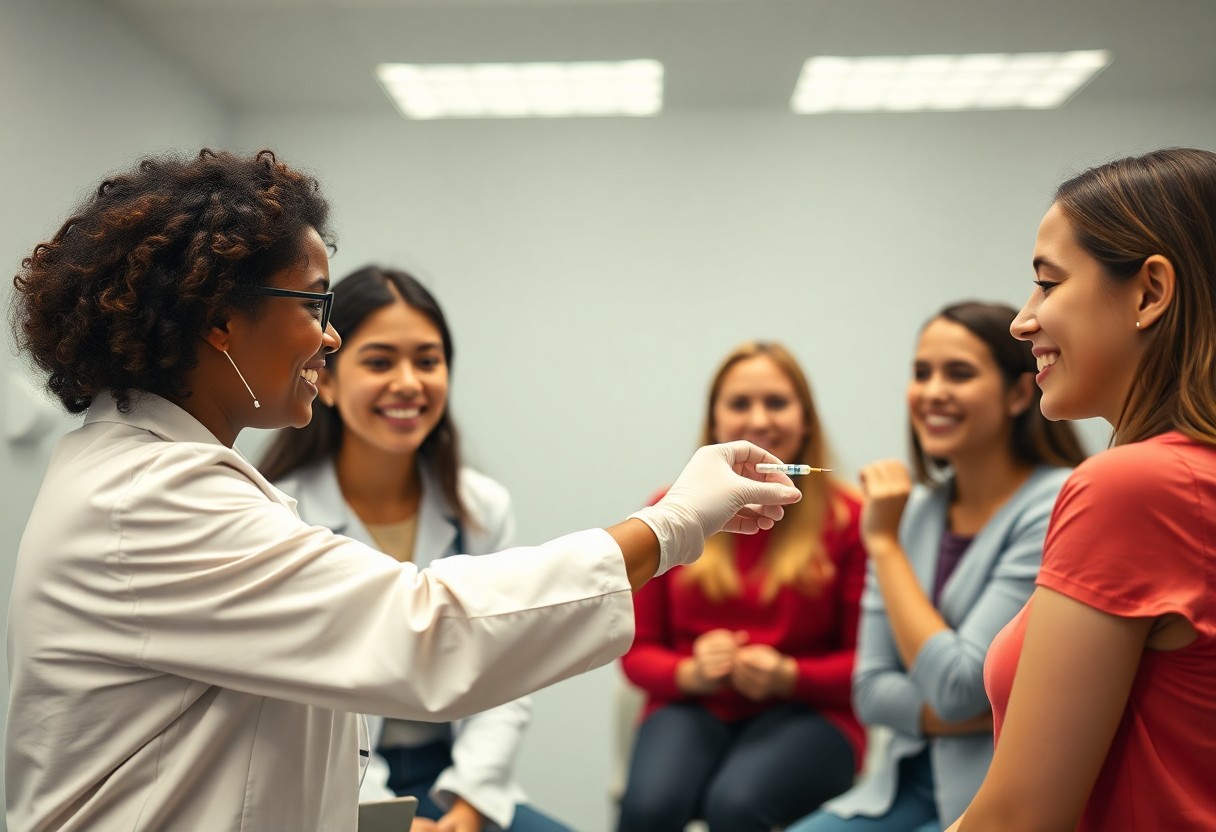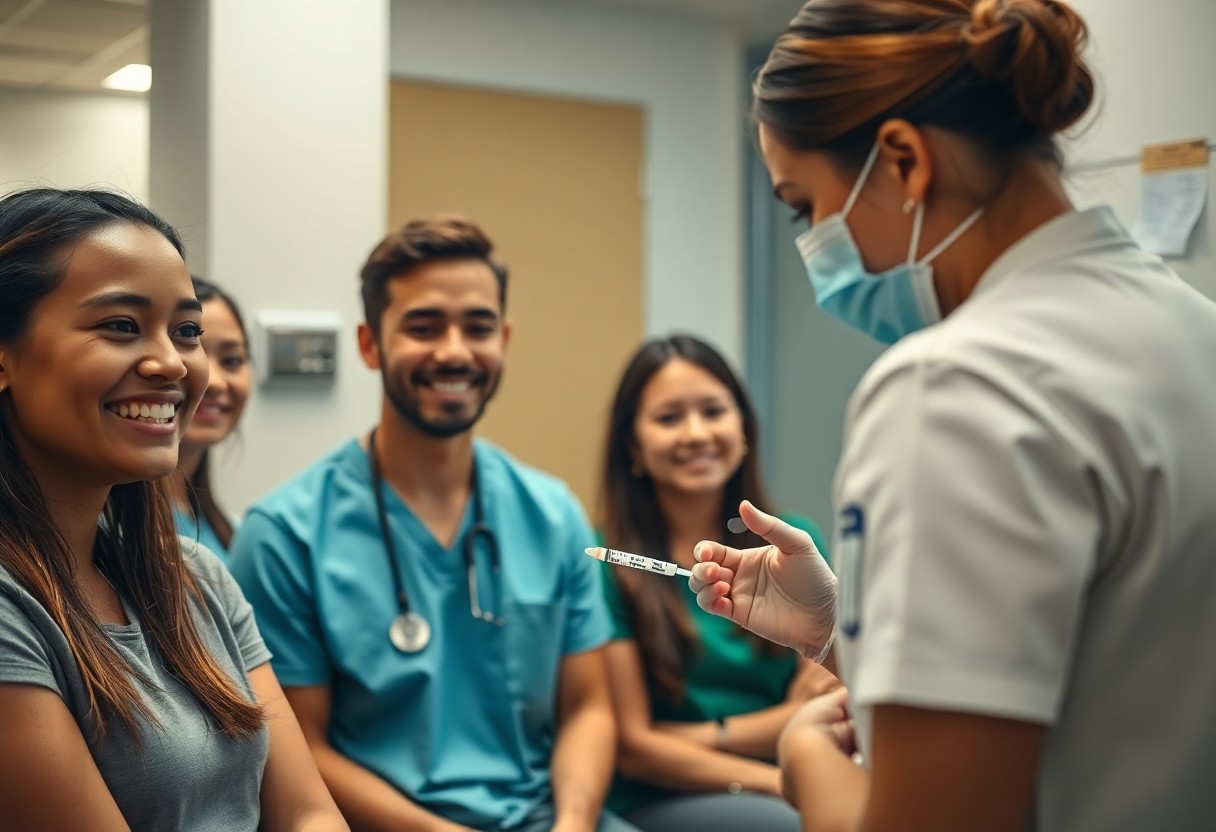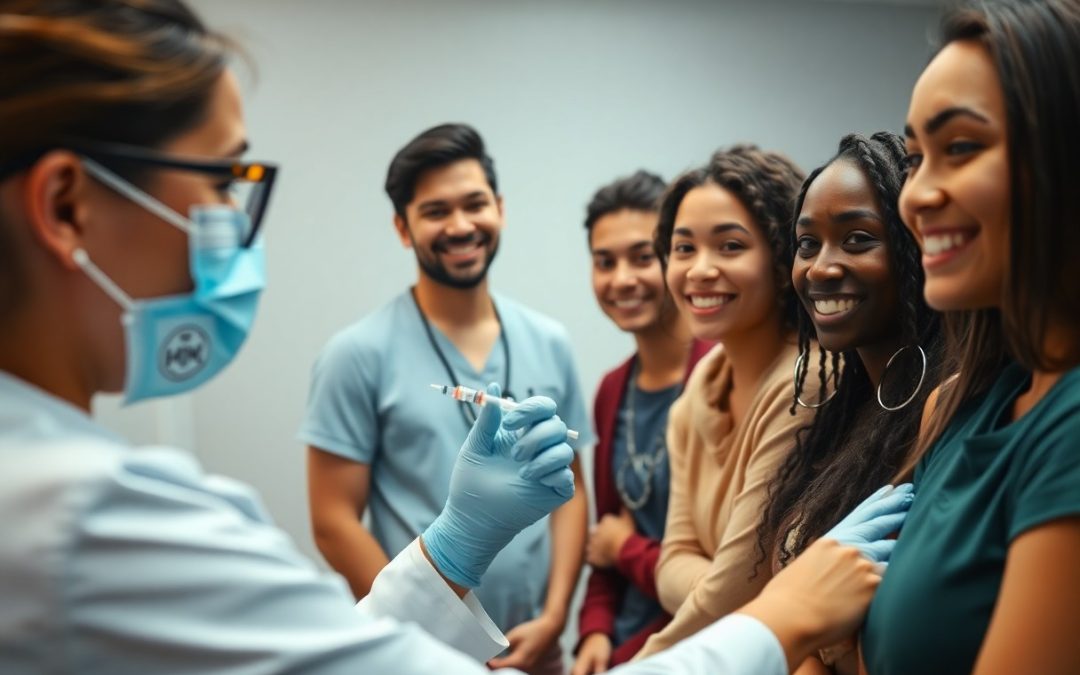Cancer prevention has reached new heights, with recent data revealing that the HPV vaccine has dramatically reduced the incidence of cervical cancer, saving thousands of lives. You may be concerned about vaccine safety and its effectiveness, but research shows it is both effective and safe, making it a vital tool in your healthcare arsenal. By getting vaccinated, you can protect yourself against HPV-related cancers and contribute to a significant decline in these cases, positively impacting your future health.
Overview of the HPV Vaccine
For decades, the HPV vaccine has emerged as a significant public health advancement, dramatically reducing the incidence of cervical cancer. This vaccine not only protects against cervical cancer but also other HPV-related cancers, positively influencing the health outcomes of both men and women. With its gradual uptake since introduction, data show a substantial decline in cervical cancer cases, indicating its role as a game-changer in cancer prevention.
Background and Development
Against the backdrop of rising cervical cancer rates, the development of the HPV vaccine was a pivotal moment in preventive medicine. Introduced in the early 2000s, this vaccine was designed to combat the strains of HPV that are responsible for most cases of cervical cancer, allowing for a proactive approach to cancer prevention.
Mechanism of Action
Beside targeting the virus itself, the HPV vaccine works by stimulating your immune system to produce antibodies against HPV strains, effectively preventing future infections. This immune response reduces the risk of developing cervical precancers and invasive cancers, significantly contributing to overall improvements in health outcomes.
Background knowledge of how the HPV vaccine operates highlights its importance in cancer prevention. By introducing harmless components of the virus into your body, the vaccine prompts your immune system to recognize and fight off actual HPV infections. This strong immune response is vital — studies reveal a 100 percent reduction in cervical cancer cases linked to the vaccine, underscoring its effectiveness and the need for widespread vaccination.

Impact on Cervical Cancer Rates
Clearly, the introduction of the HPV vaccine has had a significant impact on cervical cancer rates across various demographics. A report from the CDC indicates a dramatic decline in cases, particularly among women who received the vaccine during their adolescent years. The data emphasizes the vaccine’s effectiveness in preventing precancerous conditions, ultimately saving lives and reducing the burden of cervical cancer in your community.
Reduction in Cases Since Vaccine Introduction
Cases of cervical precancers and cancers have markedly decreased since the HPV vaccine was introduced, showcasing its effectiveness. The CDC report highlights that younger women experienced the most significant reductions, affirming that the vaccine has “100 percent” translated into fewer cervical cancer cases, according to experts.
Variations Among Different Age Groups
Around various age groups, the HPV vaccine has shown differing levels of effectiveness. The largest drop in cervical cancer cases has been observed in younger women, particularly those vaccinated at ages 11 or 12. However, older women also benefit from the vaccine, indicating a need for continued vaccination efforts across all demographics.
Vaccine uptake among different age groups reveals that while younger women see the most substantial reductions in cervical cancer rates, it remains beneficial for older women as well, as they too are at risk for HPV-related cancers. By vaccinating, you can help protect against strains that may not have been encountered yet. This multifaceted approach is proving important in combating the overall incidence of HPV-related diseases.

Safety and Efficacy of the HPV Vaccine
The HPV vaccine has undergone extensive research and has been proven to be both effective and safe for preventing various cancers associated with the virus, particularly cervical cancer. This outstanding success is reflected in a dramatic decline in cases since the vaccine’s introduction, with experts like Dr. Elena Ratner emphasizing its role in significantly reducing the incidence of cervical cancer among vaccinated populations.
Research Findings
Against the backdrop of rising vaccination rates, recent studies have shown a marked decrease in cervical precancers, demonstrating the vaccine’s effectiveness. A report from the CDC highlights that the biggest reductions in cervical cancer cases are seen among younger women, but benefits extend even to older women.
Common Misconceptions
Before deciding on vaccination, you may encounter myths regarding the HPV vaccine’s safety and effectiveness. Many believe it poses a significant health risk, yet scientific evidence consistently shows that the vaccine is safe and free of serious side effects.
Hence, it’s vital to address these misconceptions. The HPV vaccine contains ingredients that are naturally found in the body and the environment, and research indicates that it is highly effective without long-term adverse effects. Public health data reveals that vaccination has contributed to a staggering 100 percent reduction in cervical cancer cases, providing you with considerable peace of mind regarding its safety and impact on your health.
Target Populations for Vaccination
Not only is the HPV vaccine vital for preventing cervical and other cancers, but it’s also designed to protect various populations. The recommended vaccine targets both boys and girls, as well as certain young adults who may have missed vaccination during childhood. This means that regardless of your current age, there’s a chance for you to benefit from the vaccine, making it an important consideration for your health.
Recommended Age Groups
Before reaching your teenage years, it’s advisable for both boys and girls to receive the HPV vaccine, ideally between ages 9 and 12. Vaccination at this age ensures your body is protected before potential exposure to the virus, which typically occurs around the onset of sexual activity.
Importance for Men and Young Adults
Recommended for young men as well, the HPV vaccine shields against cancers attributable to the virus. It’s especially vital for young adults who didn’t get vaccinated earlier in life, as they may be at risk for various HPV-related cancers.
Adults who receive the HPV vaccine gain protection against multiple HPV strains, even if they have been exposed to some already. Vaccination can help safeguard you against new strains, especially if you’re entering new relationships. It’s vital for men to realize that they are also at risk for cancers related to HPV, including cancers of the throat, penis, and anus, thereby underscoring the importance of timely vaccination for your health.
Timing and Recommendations for Vaccination
Once again, the importance of the HPV vaccine is underscored by its role in drastically reducing cervical cancer cases. The CDC recommends that both boys and girls receive the vaccine around ages 11 or 12, ideally before their first exposure to HPV. Early vaccination ensures maximum effectiveness, paving the way for a healthier future for you and your loved ones.
Optimal Timing for Effectiveness
About 90% of cervical cancers are preventable with the HPV vaccine, making early vaccination a top priority. The vaccine is most effective when given before any potential exposure to the virus, which typically occurs before you begin sexual activity. Scheduling your child’s vaccination around ages 11 or 12 can significantly enhance its efficacy and protection.
Considerations for Those Exposed to HPV
Among individuals who may have already been exposed to HPV, the vaccine still offers significant benefits. It can protect you from strains of the virus that you haven’t yet contracted. This means that even if you’re in your early forties or have had a prior exposure, getting vaccinated might still provide protection against new HPV strains.
Vaccination serves as a powerful tool in your ongoing health strategy. It doesn’t just protect against strains you’ve already encountered but also fortifies your defense against other, possibly more dangerous, strains you haven’t been exposed to yet. For those who have had changes in their sexual partners, such as after a divorce, the vaccine is particularly important. Engaging with your healthcare provider can help you assess your eligibility and the potential benefits of receiving the HPV vaccine.
Expert Opinions and Future Outlook
Unlike past predictions, the HPV vaccine has significantly altered the landscape of cervical cancer incidence, offering a promising future for cancer prevention. With data showing reduced rates of cervical precancers among vaccinated populations, experts believe that ongoing vaccination efforts and public awareness campaigns are imperative. As more adults are vaccinated, you can expect decreasing cervical cancer rates, especially among younger populations who receive the vaccine early.
Statements from Healthcare Professionals
To emphasize the impact of the HPV vaccine, medical professionals are highlighting its effectiveness in reducing cervical cancer cases. Dr. Elena Ratner notes, “The vaccine has changed the face of cervical cancer,” reinforcing the notion that widespread vaccination could lead to a *dramatic decrease in cases* over the coming years.
Predictions for Cervical Cancer Trends
Before the advent of the HPV vaccine, cervical cancer was a significant health concern for many women. However, studies have shown a continual decline in cases, thanks to vaccination efforts targeting preteens and young adults. You can expect a long-term reduction in cervical cancer rates, especially as more individuals receive the vaccine and become aware of the benefits it provides.
At this rate, experts predict a significant decline in cervical cancer diagnoses and fatalities over the next decade. As vaccination rates increase among younger populations, it’s anticipated that the incidence of cervical cancer will decrease by at least *50%* in the next 20 years. Moreover, the vaccine not only protects against cervical cancer but also prevents related cancers caused by HPV. The future looks promising, and it is imperative for you to consider the HPV vaccine as a vital part of your health care strategy, as it can dramatically change outcomes for cervical cancer and improve overall health outcomes.
Summing up
Taking this into account, the new data illustrates that the HPV vaccine has significantly reduced cervical cancer cases, offering you an effective means to protect your health. As research supports its safety and efficacy, you are encouraged to consider vaccination for yourself and your loved ones, especially if you are within the recommended age groups. This proactive step can positively impact your overall health, ultimately saving lives and reducing cancer incidence.
FAQ
Q: How has the HPV vaccine contributed to the decline in cervical cancer cases?
A: The HPV vaccine has led to a significant reduction in cervical cancer cases, as highlighted by a recent CDC report. Since its introduction, the vaccine has been effective in preventing infection from high-risk HPV strains, which are primarily responsible for cervical cancer. This has resulted in fewer cases of cervical precancers and, subsequently, a noticeable decrease in the number of women diagnosed with cervical cancer. Experts suggest that the vaccination efforts are now yielding benefits, particularly among the first generations of vaccinated adolescents.
Q: Who is recommended to receive the HPV vaccine and at what age?
A: The CDC recommends the HPV vaccine for both boys and girls starting at ages 11 or 12, though it can be administered as early as age 9. The vaccine is most effective when given prior to any exposure to HPV, typically expected before the onset of sexual activity. Additionally, young adults who did not receive the vaccine in childhood are encouraged to consider vaccination, as it can still help protect against HPV strains they may not have encountered yet.
Q: Are there any safety concerns associated with the HPV vaccine?
A: Extensive scientific research has shown that the HPV vaccine is not only effective but also very safe. The ingredients in the vaccine are naturally occurring in the environment and human body. Experts, including medical professionals like Dr. Elena Ratner, report no significant long-term side effects or toxicity associated with the vaccine. It is crucial for individuals to discuss any specific health concerns with their doctors to ensure they understand the benefits and any potential risks related to the HPV vaccine.


